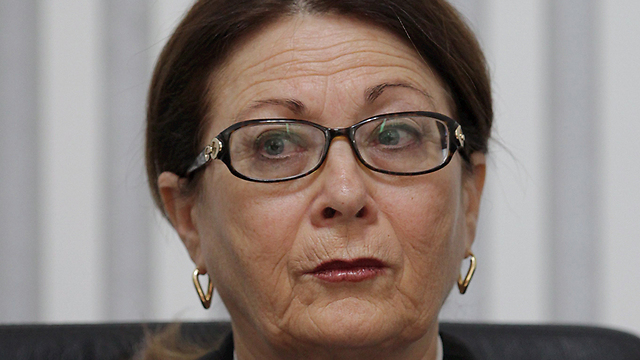
Shaked and Naor
צילום: מוטי קמחי
Shaked, Naor at odds over Supreme Court's next chief justice
So far, all chief justices were appointed based on seniority, with Judge Esther Hayut being the next in line. But Shaked, like many of her predecessors, believes the appointment must be made based on merit alone.
Justice Minister Ayelet Shaked and Supreme Court Chief Justice Miriam Naor are at odds over the appointment of the next chief justice.
The Supreme Court's chief justice is customarily appointed based on seniority, with Judge Esther Hayut being the next in line.
The appointment based on seniority is a custom and not enshrined by law. It is done by the Judicial Selection Committee with a regular majority. All of the Supreme Court's chief justices have been selected in this manner.

Supreme Court Chief Justice Naor and Justice Minister Shaked (Photo: Gil Yohanan) (צילום: גיל יוחנן)
Naor, who wishes to train Hayut for the job before she retires in October, has made several requests to Minister Shaked to include the topic in the Judicial Selection Committee's upcoming discussions in June, but so far Shaked has refused.
Naor believes appointing the chief justice based on seniority ensures continuity and stability and prevents politicians from interfering with the selection process.
She is also concerned a deviation from this system could cause friction within the court, as judges would compete for the role and recruit politicians to support them.
Furthermore, Naor is worried judges might make rulings during their terms based on what is popular rather than what is judicially appropriate.
Regardless of the seniority system, Hayut is an esteemed judge, and there is no dispute that she is worthy and fitting to serve as the Supreme Court's chief justice.
However, Shaked, like predecessors Yossi Beilin, Haim Ramon and Daniel Friedman, believes a person cannot be chosen for a role years before taking it on.
Those who oppose the seniority system argue in favor of adopting the custom in the Western world of promoting judges based solely on merit. They see the seniority system as a way to circumvent the Judicial Selection Committee's authority.
"By marking the next chief justice many years in advance, the current Judicial Selection Committee becomes, in effect, a rubber stamp," said a senior judicial official.











